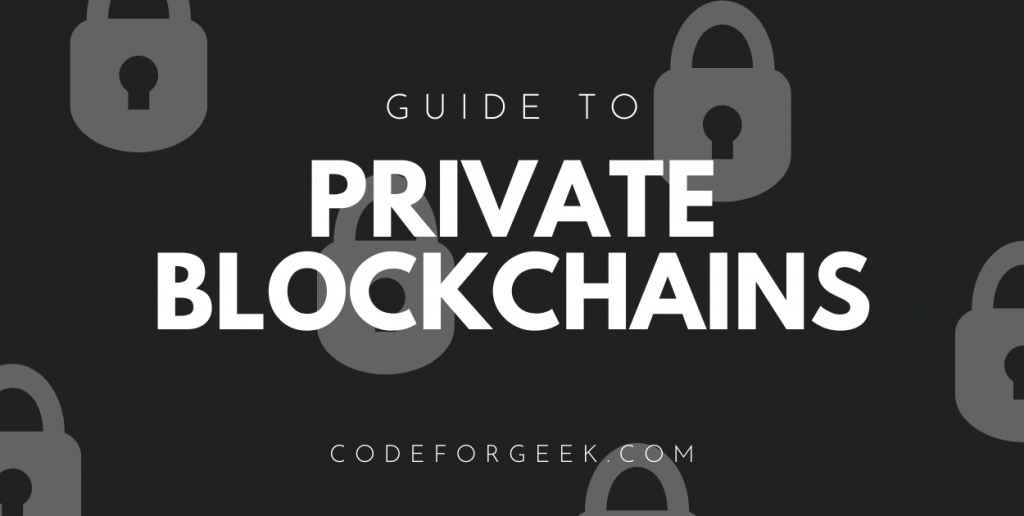When someone talks about blockchain, it’s decentralized is what most of us have read. Ever heard about Private Blockchains? In this article, I am going to walk you through what are private blockchains, some of their key features, and why one should use them.
If you want, you can read about Public Blockchains here.
To begin with, let me tell you a bit more about blockchain that you apparently didn’t hear much of. If you have been reading about blockchain lately, or are a crypto enthusiast, or maybe even a qualified blockchain professional, you have heard of Satoshi Nakamoto.
He’s a mysterious figure in the world of crypto. No one knows if Satoshi is a boy, a girl, or a firm. Though some of us credit Satoshi for creating Bitcoin, his greatest ever innovation is actually the blockchain!
Blockchains are essentially referred to as a single digital ledger where all transactions are recorded within a cryptocurrency ecosystem. The transactions are recorded chronologically and are publicly available.
However, not all blockchains work this way. There exist both public blockchains and private blockchains. Both are decentralized (to some extent at least), however, each holds essential differences and use cases.
So let us get dive deeper into the concept of private blockchains.
What are Private Blockchains?
A private blockchain is developed and managed by a private organization/firm that controls the mining process and consensus algorithm. It is the private organization that decides who may or may not join the network and download the nodes.
Well yeah, it isn’t so decentralized as we thought! Basically, this type of blockchain doesn’t allow anyone to read, write or audit the blockchain anytime. Furthermore, the owning organization may even override the blockchain command or delete it if they please!
Unlike a public ledger in a public blockchain, private blockchains use a “shared” ledger that is only shared with the organization’s chosen users.
However, the ledger is cryptographically secured and no one can see your money.
Organizations, greatly demand privacy mainly because they are storing crucial user data or even organizational data. This is where private blockchains are deemed fit. When a company’s privacy is handicapped, competitors immediately enter the platforms and disclose valuable data to the media influencing the brand value significantly.
Key Features of a Private Blockchain
Let us move on to discussing some of the many key features of this blockchain.
Completely Private
Private blockchains have their chief focus on privacy. So, if you are looking for a technology that strongly supports privacy, then these are surely for you.
With the increasing and stronger cyber-attacks multiplying day by day, it becomes difficult to keep everything at bay. Organizations need immensely secure systems when dealing with sensitive information.
A private blockchain in such cases is soothing to sore eyes. They help companies tighten up their security systems, to make it impossible for hackers to get in.
Highly Efficient
This blockchain technology provides great levels of efficiency. As a matter of fact, private blockchains perform better than the usual public ones. Guess why?
Well, it’s because only a handful of users are authorized entry in a private network, making it easier to manage and comparatively efficient in performance. Moreover, there’s no way these nodes can use up more resources than usual.
On the other hand, a public blockchain doesn’t restrict the number of nodes. This results in a drastically slower system when there’s a lot of traffic. Private networks are immune to these issues and offer better and faster performance.
Scalability
To function smoothly and efficiently, businesses demand highly stable and scalable networks which is what private platforms offer. These platforms grow, never slow down, and scale well as time passes. This also results in reduced fees.
Robust Architecture
Private networks are currently featuring one of the best robust network structures. In case of issues, they are resilient and come with a good level of security conventions helping to show the door to malware.
Some networks even come with a firewall-like feature to protect all information within the shared ledger from outsiders.
Why Should you Use a Private Blockchain?
Let me enlist a few benefits justifying why you too should use a private blockchain:
- Environment-friendly – While most of us know, mining cryptocurrencies is detrimental to the environment because of its immense energy consumption, private blockchains come with pre-mined coins making the technology safe for the environment.
- Saves resources – Developing and managing this network is quite simple and doesn’t use much of the resources, and requires lesser attention. They use lesser time, money and manpower, when compared to other efficient technologies.
- Empowering Enterprises – Companies are demanding robust technology to control their security attacks and damages. Private blockchain networks have now emerged as the need-of-the-hour solutions to the fueling issues.
Conclusion
When someone talks about blockchain, it’s decentralized is what most of us have read. Ever heard about Private Blockchains? In this article, I am going to walk you through what are private blockchains, some of their key features, and why one should use them.

